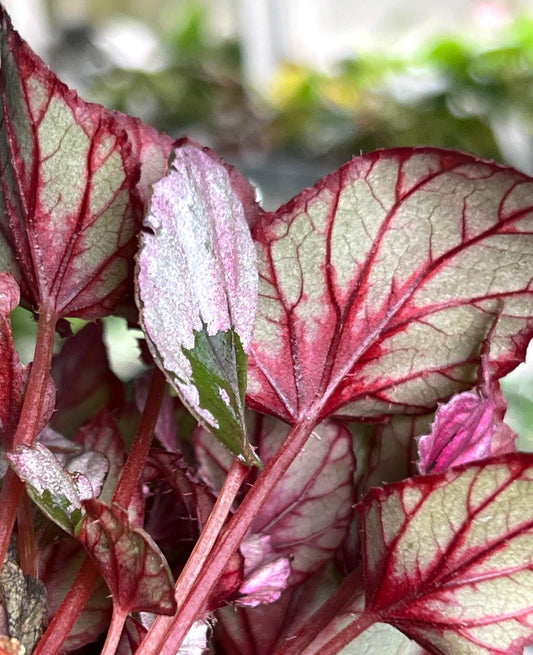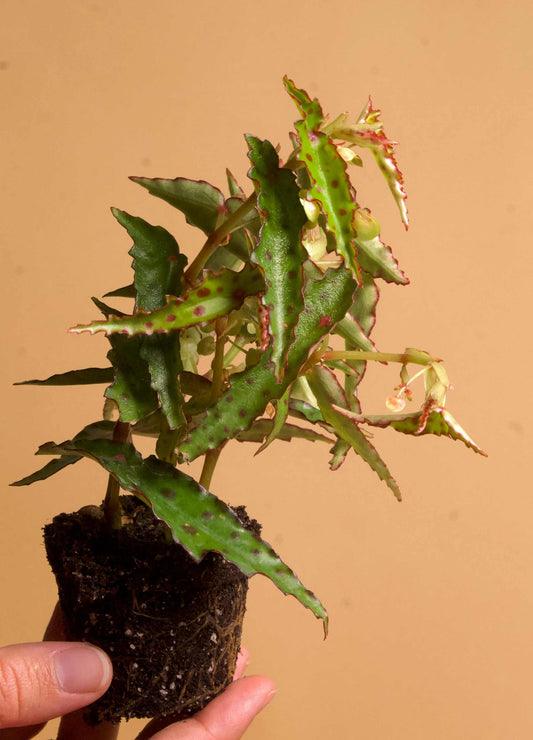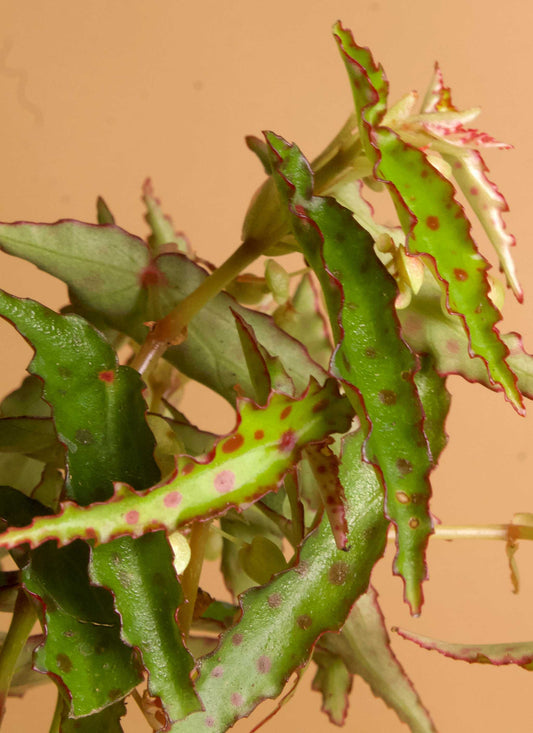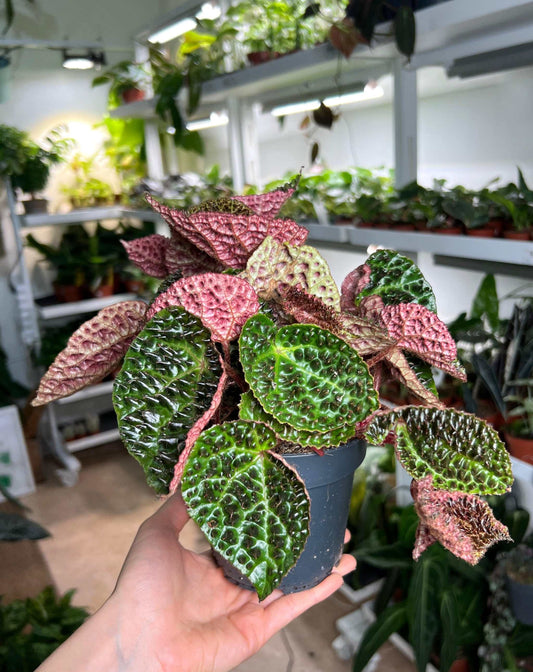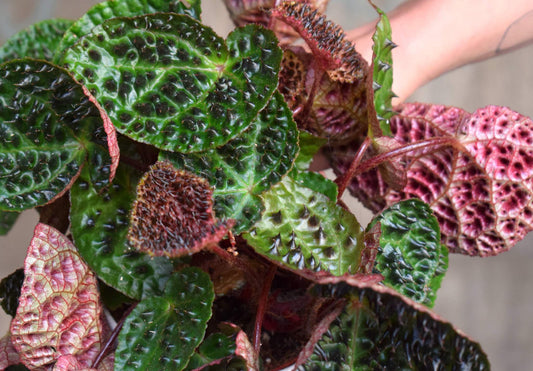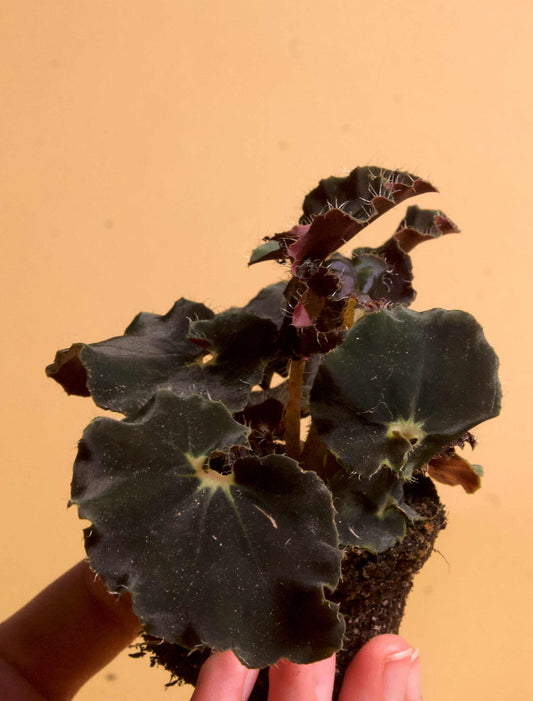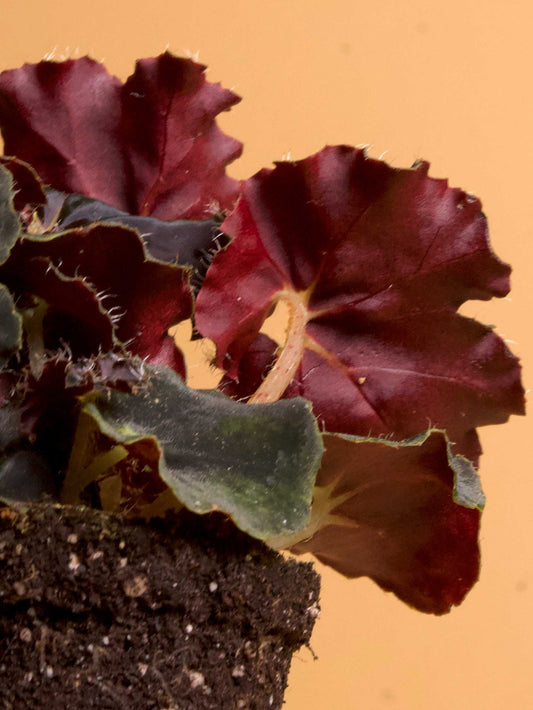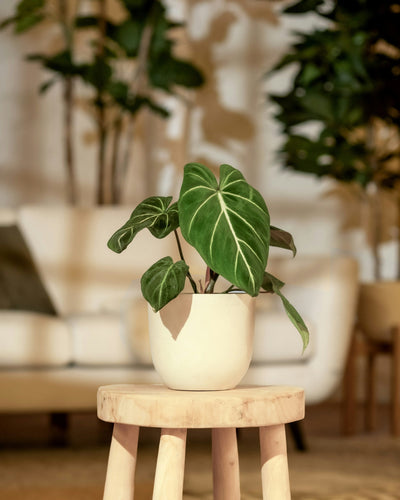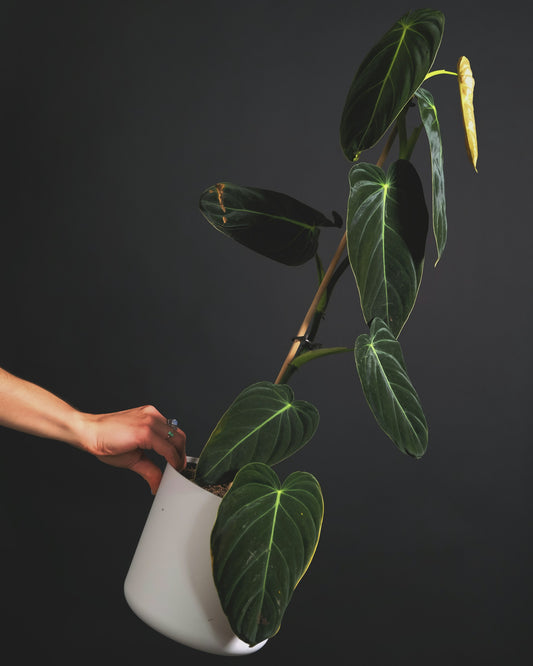Share
Leaf begonia, a riot of color in a pot
There are many begonia species and varieties, but the rexbegonia stands out with its colorful, beautiful leaves. Some look almost painted. These plants are very easy to cross with their small flowers that are otherwise relatively inconspicuous compared to the leaves. Either way, this means that there is an incredible variety of varieties to choose from!

Rexbegonia is originally from subtropical parts of Asia and therefore thrives best in even heat and high humidity. Begonia rex is well suited as a houseplant indoors, but can be a bit sensitive, especially when it comes to watering and humidity. However, if you give it the right conditions, it is a truly unique plant to decorate indoors with.
Here we go through the care of leaf begonias step by step.
Light
The leaf begonia thrives best in bright but indirect light. It likes to be near a window but not in direct sunlight, which can burn the leaves. Too little light causes the plant to lose color and may stop growing. It also handles grow lights well and is therefore suitable even in darker apartments.

Begonia rex escargot with its snail-shaped leaves.
Soil
Use an airy and well-drained soil, preferably a mixture containing sphagnum moss, coconut coir, perlite and a little bark. The roots of begonia rex are thin and delicate and do not thrive in compact soil. The soil should retain moisture but still allow water to pass through so that it does not become soggy and acidic.
Transplantation
Rexbegonia grows from a shallow, tuber-like rhizome system, which means it does best in wide but shallow pots. If the plant starts to fill the entire pot or the roots are pushing against the edges, it is time to repot. Spring or early summer is a good time to repot. Also take the opportunity to divide the plant if you want to propagate it.

Some begonias grow as epiphytes and sometimes require orchid soil to thrive indoors.
Investment
Place the leaf begonia in a place with an even temperature, preferably around 20 degrees. Rexbegonia does not like drafts, sudden temperature changes or being directly above a radiator. An east or west facing window sill is usually perfect. In a hanging basket, it can be allowed to hang its leaves down in a decorative way.
Common problems
Yellow leaves can be caused by overwatering or too wet soil. Allow the soil to dry out between waterings. Soft or drooping leaves can also be a sign that the plant is getting too much or too little water. Feel the soil to determine.
Pests such as thrips and mealybugs can occur, especially if humidity is low. Keep an eye on the underside of the leaves and remove dead leaves regularly to reduce the risk.
Tip! Use beneficial insects to prevent and treat pests on begonias. For rexbegonias in particular, we recommend beneficial insects against primarily spider mites and thrips. You can subscribe to these two here.
Brown spots or dry edges may be due to dry air or the leaves getting wet when watering. Do not spray the leaves directly, but rather increase the humidity in the room.
Proliferation
Propagating leaf begonias is both fun and quite simple.
- Take cuttings from leaves: cut off a healthy leaf with a stem and place it in moist soil. Cover with plastic to create a mini-greenhouse environment. After a few weeks, new small plants should start to develop.
- Divide the plant's rhizome when replanting, especially easy with older plants that have grown large.
Toxicity
Unfortunately, leaf begonia is toxic to both humans and animals , including cats. The leaves contain substances that can irritate both the mouth and stomach if ingested. Therefore, keep the plant out of reach if you have curious pets at home.

Begonia rex evening glow: a popular and very colorful variety!
Summary:
Leaf begonia or 'rexbegonia' is a colorful and decorative indoor plant that comes in many different shapes and patterns. With the right soil, light and moisture, it is quite easy to care for and can really brighten up an entire windowsill or bookshelf. If you want a plant with different leaves, an exciting appearance and personality, then the rexbegonia is a perfect candidate!



